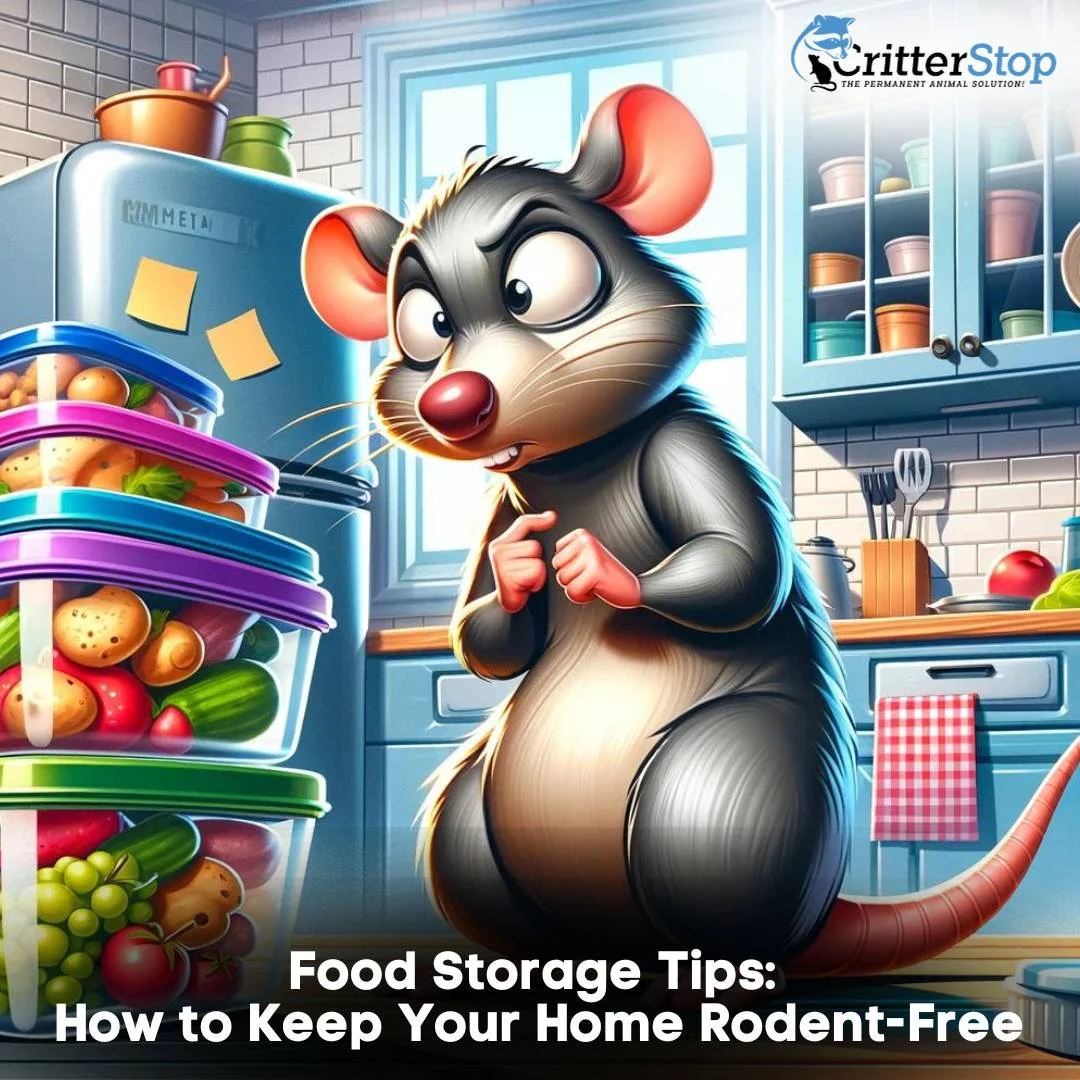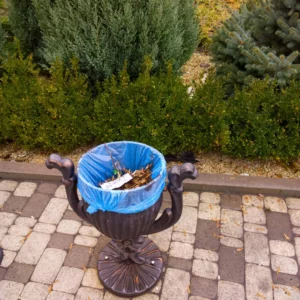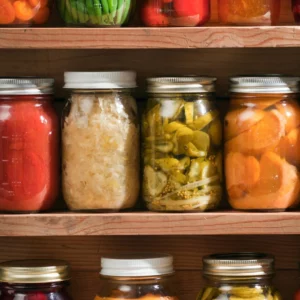
Do you often find rodents in your home, rummaging through your food storage? Not only can these critters cause damage to your belongings, but they also pose health risks. It's essential to take proactive measures to keep your home rodent-free. In this article, we'll explore effective food storage tips that will help you create an environment that's less appealing to these unwanted visitors. From maintaining a clean and tidy home to properly storing your produce, we've got you covered.
Maintaining a clean and tidy home is crucial in preventing rodents from making themselves at home. Regularly cleaning your living space will remove potential food sources and deter rodents from venturing in. Here are some essential cleaning tips that will help you maintain a spotless living space:

Keeping your living space clean goes beyond just the basics. It's important to pay attention to the little details that can make a big difference. For example, regularly dusting and wiping down surfaces can prevent the buildup of dust and dirt, which can attract rodents. Additionally, organizing and decluttering your home can not only create a more aesthetically pleasing environment but also eliminate potential hiding spots for rodents.
Furthermore, it's essential to regularly clean and maintain your kitchen appliances. Grease and food residue can accumulate on stovetops, ovens, and microwaves, providing a feast for rodents. Make sure to clean these appliances thoroughly to remove any traces of food that might attract unwanted guests.
We all know how unpleasant a smelly trashcan can be. Not only does it create a foul odor, but it can also attract rodents. Here's how you can keep your trashcan odor-free:
In addition to these tips, it's important to be mindful of the types of waste you dispose of in your trashcan. Avoid throwing away food scraps or other organic waste without properly sealing them in a bag or container. This will help prevent odors from permeating the trashcan and attracting rodents.
Another effective way to keep your trashcan odor-free is to regularly wash it with a mixture of water and vinegar. This natural cleaning solution can help eliminate any lingering odors and keep your trashcan smelling fresh.
By following these cleaning tips and incorporating them into your regular cleaning routine, you can create a clean and tidy living space that is less inviting to rodents. Remember, prevention is key when it comes to keeping rodents at bay, and a clean home is the first line of defense.

Have you ever wondered why your bread quickly becomes stale? Well, the way you store it plays a significant role. By using a bread box, you can extend the freshness of your bread. Let's take a look at the benefits of using a bread box:
A bread box provides an enclosed space that helps regulate moisture levels, preventing bread from drying out. Here are the key benefits:
When it comes to storing bread, many people often overlook the importance of using a bread box. However, this simple kitchen accessory can make a significant difference in the lifespan and quality of your bread. By providing an enclosed space, a bread box creates a microclimate that helps regulate moisture levels, preventing your bread from becoming dry and stale.
One of the primary benefits of using a bread box is its ability to keep bread fresh for longer periods, reducing waste. When bread is exposed to air and humidity, it tends to lose moisture quickly, resulting in dry and unappetizing slices. By storing your bread in a bread box, you create a barrier that protects it from these external factors, maintaining its freshness and taste.
In addition to keeping your bread fresh, a bread box also helps prevent mold growth. Mold thrives in moist environments, and bread left exposed to air and humidity becomes a breeding ground for these unwanted microorganisms. By storing your bread in a bread box, you create a drier environment that inhibits mold growth, ensuring that your bread remains safe to consume.
Furthermore, using a bread box can also help you save money. When bread becomes stale or moldy, it often ends up in the trash, resulting in unnecessary waste. By using a bread box to extend the freshness of your bread, you can reduce the frequency of buying new loaves, ultimately saving you money in the long run.
When choosing a bread box, consider the size and design that best suits your needs. Some bread boxes come with built-in cutting boards or additional storage compartments, providing added convenience. Additionally, opt for a bread box made from materials that allow proper ventilation, such as bamboo or metal with ventilation holes, to ensure optimal freshness.
In conclusion, a bread box is a valuable addition to any kitchen. It helps regulate moisture levels, keeping bread fresh for longer periods, protecting it from air and humidity, and preventing mold growth. By investing in a bread box, you can enjoy delicious, fresh bread while reducing waste and saving money. So, why not organize your kitchen and enhance the lifespan of your bread with a bread box today?
Do you often rely on old Tupperware containers to store your leftovers? If so, it's time to upgrade your food storage options. Using old Tupperware can pose health risks and impact the freshness of your food. Let's delve into the dangers of using old Tupperware:
Over time, Tupperware containers can degrade, allowing chemicals to leach into your food. Here are the key dangers:

Are you tired of your fruits and vegetables spoiling quickly? Properly storing your produce can significantly extend its shelf life. Follow these simple tips to keep your produce fresh for longer:
Are you looking to add depth and flavor to your dishes? Look no further than bay leaves. These aromatic herb leaves have been used in cooking for centuries, and for a good reason. Let's explore the versatility of bay leaves in cooking:
Bay leaves offer a wide range of culinary benefits, including:
Finally, let's discuss some effective pest control tips to ensure your home remains critter-free. By implementing these measures, you can create an environment that's less attractive to rodents and other unwanted pests:
By following these effective food storage tips, you can create a home environment that is uninviting to rodents. Maintaining a clean and organized space, upgrading your food storage containers, and properly storing produce will not only help keep rodents away but also ensure the longevity and freshness of your food. Additionally, incorporating bay leaves into your cooking and implementing pest control measures will further contribute to a critter-free home. Remember, prevention is key when it comes to keeping unwanted visitors out of your food storage areas. Take control of your home and enjoy a rodent-free environment!